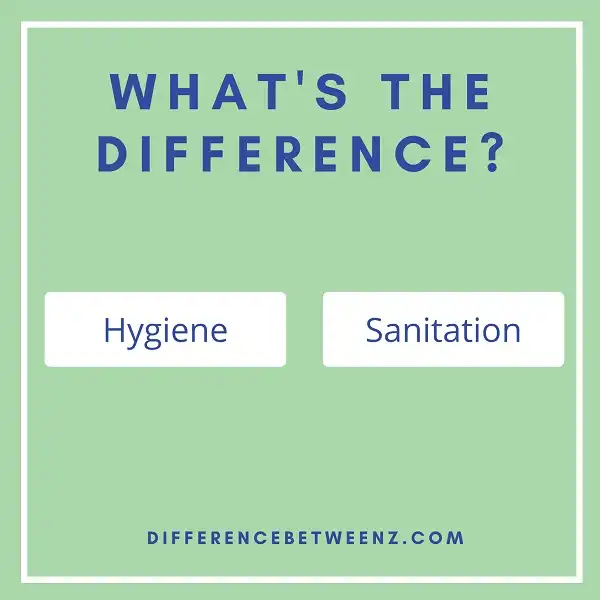Maintaining hygiene and sanitation are both important parts of keeping a healthy lifestyle, but they are not the same thing. Hygiene is the term used to describe the actions taken by an individual to keep their body clean. Sanitation, on the other hand, is about keeping a clean environment. In this blog post, we will explore the difference between hygiene and sanitation and look at some examples of each.
What is Hygiene?
Hygiene is the practice of cleanliness in order to prevent the spread of illness and disease. Hygiene habits such as handwashing, covering coughs and sneezes, and avoiding contaminated food and water are important for preventing the spread of harmful germs. Good hygiene habits are also important for maintaining personal health and well-being. By taking steps to practice good hygiene, individuals can help protect themselves and others from illness.
What is Sanitation?
Sanitation is the process of cleanliness in order to prevent the spread of diseases. Sanitation involves both personal hygiene and environmental cleanliness. Good sanitation practices include regular handwashing, cleaning surfaces, and disposing of waste properly. Sanitation is important because it helps to prevent the spread of harmful bacteria and viruses.
Poor sanitation can lead to the outbreak of diseases, such as cholera and typhoid fever. In addition, good sanitation practices can help to improve overall health and well-being. Sanitation is especially important in areas with high densities of people, such as schools, hospitals, and office buildings. By practicing good sanitation, we can help to keep ourselves and our environment healthy.
Difference between Hygiene and Sanitation
Hygiene refers to the set of practices that enable us to preserve our health and prevent the spread of diseases. It includes practices like hand-washing, food safety, using clean water, etc. Sanitation, on the other hand, refers to the infrastructure and facilities that we use to dispose of our waste safely. This includes things like toilets, sewers, garbage disposal systems, etc.
While both Hygiene and Sanitation are important for public health, they are different in terms of their focus and approach. Hygiene is more focused on individual behavior and personal cleanliness, while Sanitation is more focused on the larger system of waste management.
Conclusion
The terms hygiene and sanitation are often used interchangeably, but they have different meanings. Hygiene is the maintenance of cleanliness to prevent illness, while sanitation refers to the process of cleaning up and getting rid of contaminants. It’s important to understand the difference between these two concepts because improper sanitation can lead to outbreaks of disease.


